Yemen’s Ansarullah slams awarding 2020 Nobel Peace Prize to World Food Programme
Yemen’s popular Houthi Ansarullah movement has censured the World Food Program (WFP) over failing to stop famine in the war-ravaged country, where the current level of hunger is unprecedented and millions of people are suffering severe hardship.
Talaat al-Sharjabi, a spokesman for the movement, told AFP news agency on Friday that the WFP had “largely failed in the biggest task for which it was chosen (for the Nobel Peace Prize), and that is combating hunger.”
“A large number of people suffer from malnutrition... and there is also a failure on the WFP's part to be neutral in terms of humanitarian aid distribution,” he said.
Sharjabi’s remarks came shortly after the WFP won the 2020 Nobel Peace Prize for what was described as its efforts to combat hunger and food insecurity around the globe.
The announcement was made in Oslo by Berit Reiss-Andersen, the chair of the Nobel Committee.
The Nobel Committee said the coronavirus pandemic has worsened a hunger crisis faced by millions of people around the world and called on governments to ensure that WFP and other aid organizations receive the financial support necessary to feed them.
The United Nations has already painted a bleak picture of the hunger crisis gripping Yemen, calling it the “world's worst humanitarian crisis.”
United Nations agencies warn of an “alarming increase" in the number of people facing "acute food insecurity” in Yemen amid a crippling siege by the Saudi-led military coalition and the coronavirus pandemic.
The grim analysis was made public in a report published on July 23 by the WFP, the UN Children's Fund plus the Food and Agriculture Organization.
According to the report, the overall economic decline made worse by the Saudi siege and the coronavirus pandemic, coupled with flash floods and desert locust invasions, are threatening to reverse hard-earned food security gains in the warn-torn peninsular Arab country.
The analysis, conducted in 133 districts in southern Yemen, forecast that the number of people facing high levels of "acute food insecurity" will rise from two million to 3.2 million in the next six months.
‘UN complicit in Saudi massacre of Yemeni people’
Also on Friday, a senior Yemeni energy official has slammed the UN for what he described as cover-up of Saudi massacre of Yemenis through tight blockade and ensuing starvation.
Executive Director of the Yemen Petroleum Company (YPC), Ammar al-Adrai, called on all freedom-loving people of the world to bring the Saudi-led coalition of aggression to trial in local and international courts.
Adrai noted that the military alliance is currently detaining 17 oil tankers, imposing a hefty fine of more than 50 million dollars on Yemen.
He pointed out that nearly all YPC stations have stopped their work, and that only seven stations are operating in each province.
Saudi Arabia and a number of its regional allies launched the war on Yemen in March 2015, with the goal of bringing the government of former president Abd Rabbuh Mansur Hadi back to power and crush the popular Houthi Ansarullah movement.
The US-based Armed Conflict Location and Event Data Project (ACLED), a nonprofit conflict-research organization, estimates that the war has claimed more than 100,000 lives for over the past five years.
The Houthi Ansarullah movement, backed by armed forces, has been defending Yemen against the Saudi-led alliance, preventing the aggressors from fulfilling the objectives of their deadly campaign.
200 days of genocide: Palestinian resistance prevails over occupation
Ukraine launches drone strikes on Russia's energy sites
VIDEO | Anti-US sentiments grow in Iraq as US military presence unresolved
Jamaica officially recognizes state of Palestine
Raeisi attends inauguration of Iran-built mega multipurpose project in Sri Lanka
'Sinwar still supervising Gaza war; Israel deliberately delaying talks on captives'
VIDEO | Press TV's news headlines
UK's Rwanda deportation plan morally disgraceful







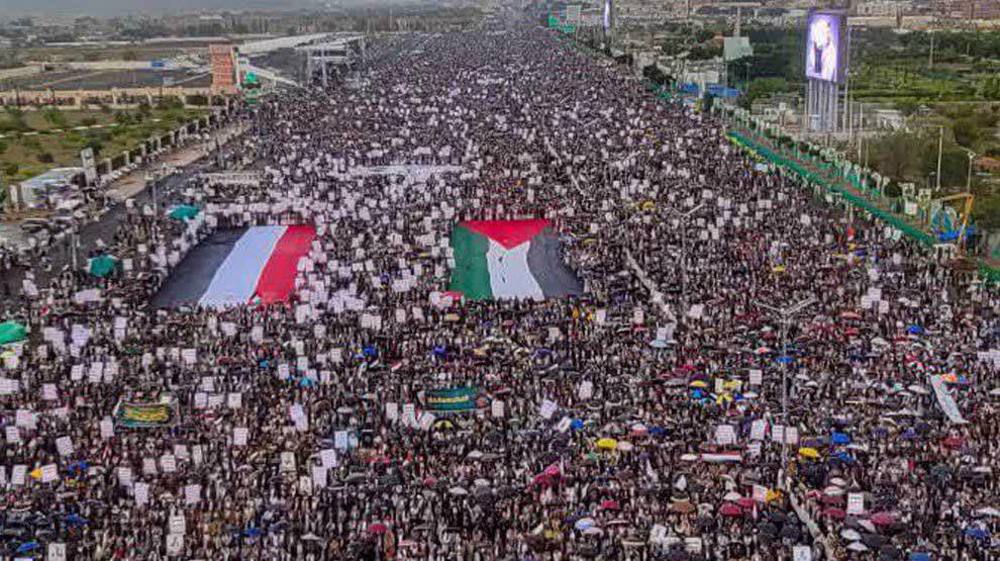




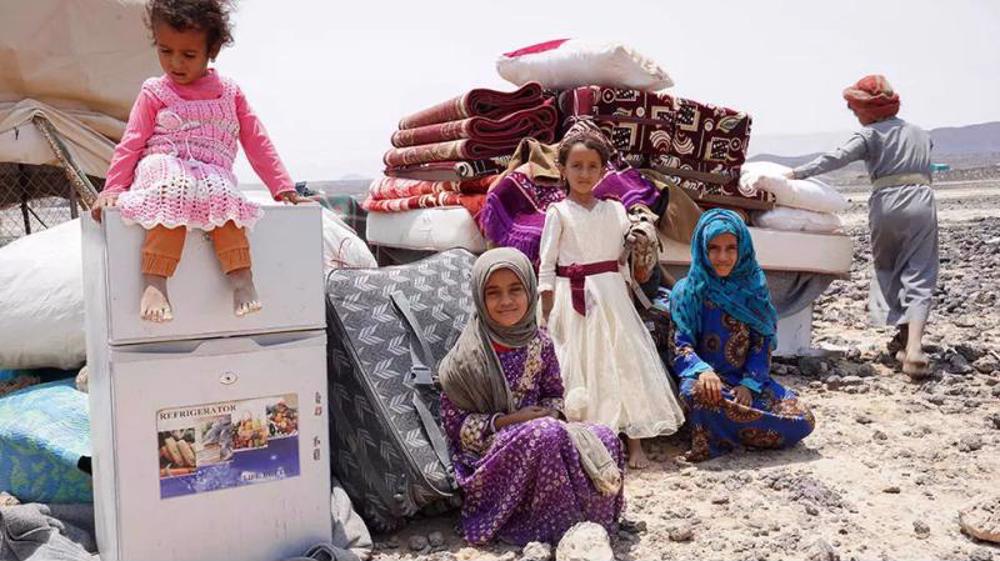




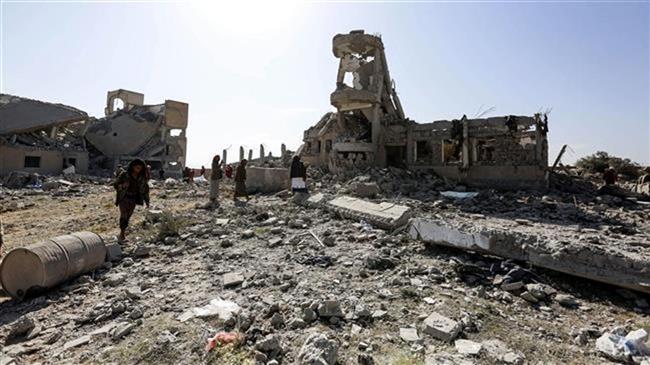
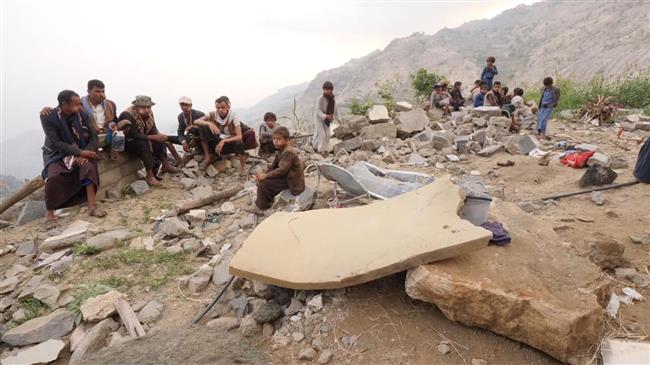
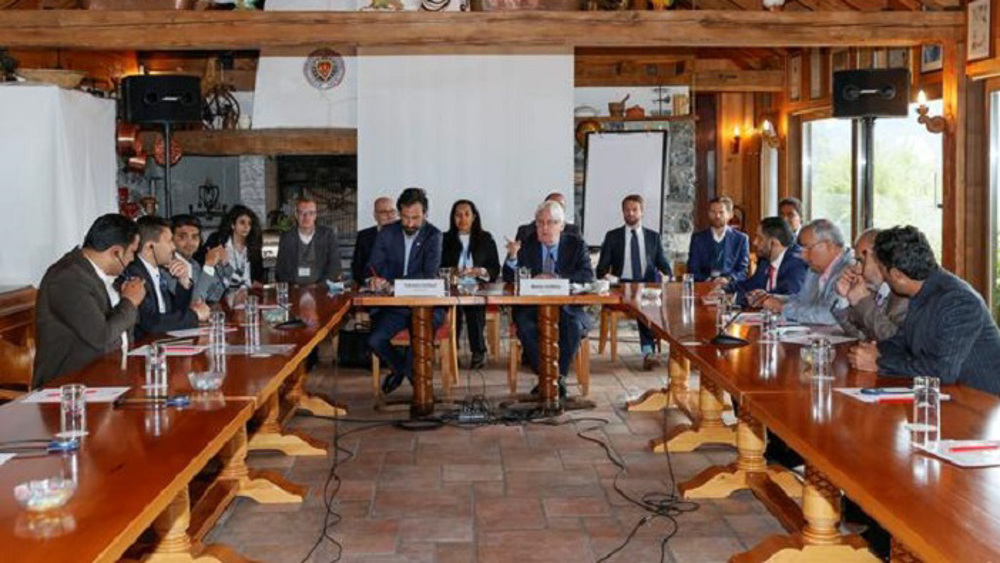
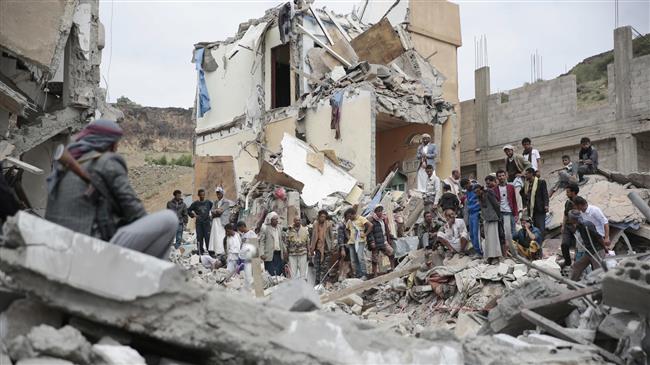

 This makes it easy to access the Press TV website
This makes it easy to access the Press TV website